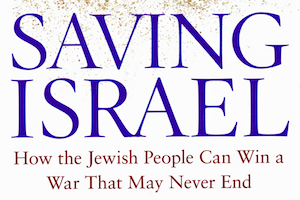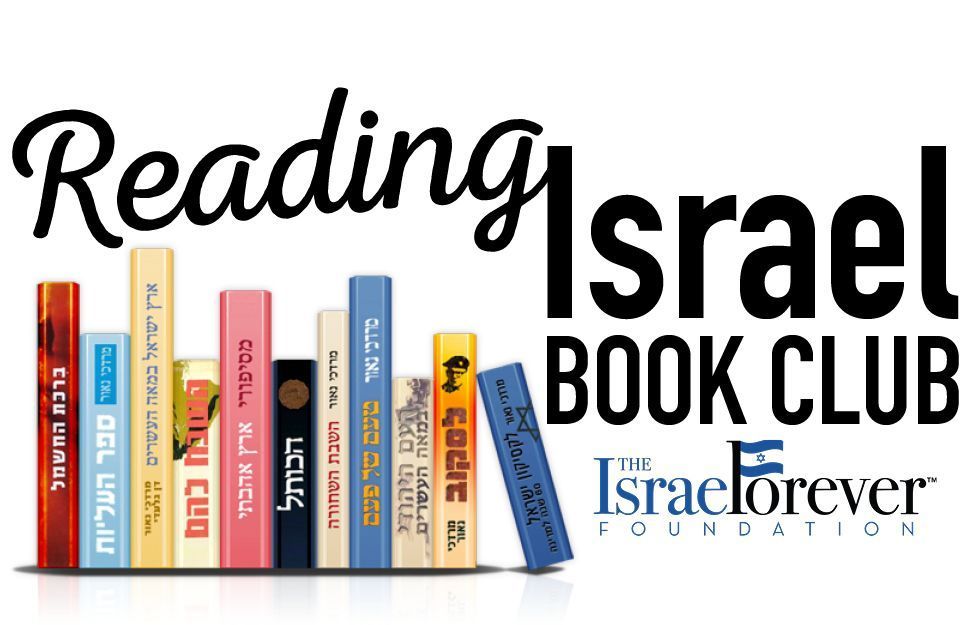It's All About the Passion: The Gilboa Iris
By Zahava D. Englard
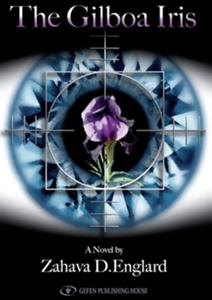
It’s all about the passion.
Like every Israeli living in Israel, I’m passionate about the land.
The Gilboa Iris tells a story not just about the passion between the two main characters, but passion between the characters and the Land of Israel. Perhaps it is because we live under a constant existential threat that Israel is a country steeped in passion, where we live for each moment − because one never knows what the next moment will bring.
The Gilboa Iris weaves together the timeless love story of Dara and Roni, a feisty American student and a brilliant Israeli commando, against the backdrop of global terror involving the infiltration of the US’s defense stratum and a double homicide on American soil.
In the summer of 1983, Dara travels to volunteer on a kibbutz in the Gilboa Mountains, though her parents insist she return home in time for her freshman year at Columbia University. In addition, her father is a rocket physicist with the U.S. Department of Defense, and is concerned about what message his daughter's time in Israel will send to the U.S. government. While on the kibbutz, Dara falls in love with Roni, a young Israeli officer in an elite counter-terrorism unit, and they soon make plans to marry - against her parents' wishes. Dara's life, however, is hurled into turmoil when a terror cell targets her father in an attempt to procure information regarding the U.S.'s advanced rocket technology. Set within one of the world's most contentious regions, The Gilboa Iris is a fast-paced, spine-tingling story of danger, suspense and yes, love.
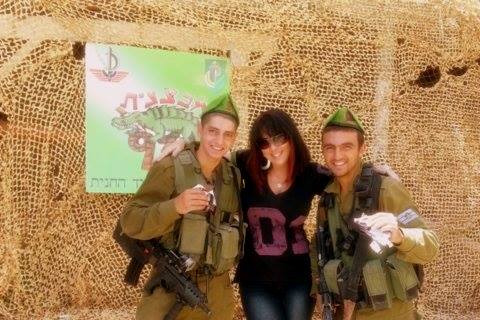
Over the years, I’ve visited too many families in Israel who had lost loved ones – either in terrorist attacks, or while on active duty in the IDF.
One hopes to give a measure of comfort and strength to the bereaved. But what I always found, without exception, is that each of these families provided the strength and encouragement to all who visited THEM. They had such a high level of faith, courage and strength, that out of the depths of their despair when they would recite the blessing, Baruch Dayan Ha-emet, (bless the true judge), they meant it.
After one such visit a couple of years ago, my mind wandered (having my own two sons in the army) to a place a mother never wants it to wander. I thought about how I would react if God forbid...
Would I be as brave as these families? Would I be able to summon up that level of faith? Strength? Courage?
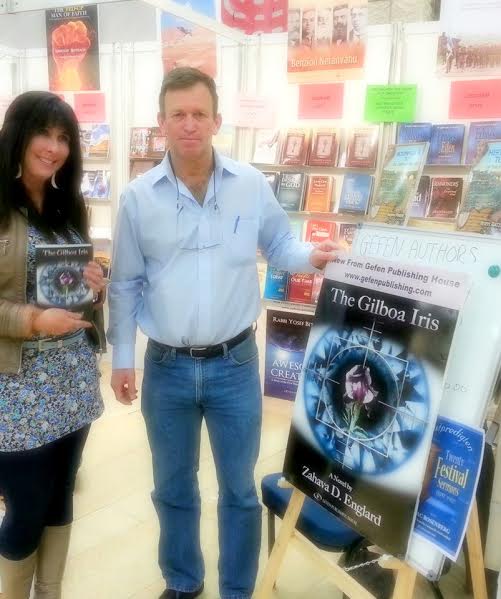
I explored what I thought my reaction would be through a character that I conjured up in my mind, later to become the female protagonist of The Gilboa Iris, Dara Harow. Her reaction was not a pretty one. It was raw and unrestrained. It was unpleasant – at times disturbing. It was human and it was passionate.
Before I knew it, I had a whole scenario playing out in my mind with “Dara,” a young idealistic American student, who travels to Israel to live her dream and must deal with the deadly consequences of Arab terror and global jihad, and “Roni Ben-Ari,” the symbol of the type of courage and unrelenting hope that can be found in the modern day Israeli.
I don’t like to dwell on despair, so I allowed the tale in my head to spin its way through yarns of action, romance, suspense, even humor, culminating on a note of hope and optimism.
I wanted to transport the reader, invite him or her into the very passionate core of the Israeli. The mainstream media does not paint an accurate or fair picture of Israel and of Israelis. So, in writing The Gilboa Iris, I wanted people to see what I see, what Israelis see and what needs to be seen. I wanted the reader to be submerged in the lives of Dara, Roni and Uri – to feel what my characters felt as if it were palpable – to have the passion permanently imprinted in one’s heart.
My favorite scene was the saddest one in the novel, and what was the most difficult to write. It was the chapter that had Dara face the most devastating consequences of Arab terror, depicting her very real, very pained and at the same time very indignant and passionate reaction. I wrote it out of some deep and sorrow-filled place, impressed upon me from my own experiences after meeting victims of terror − those who were left behind to pick up the pieces.
The message of The Gilboa Iris is twofold:
Triumph over despair and holding on to hope at all costs. I like happy endings. Not fairy-tale happy endings, but happy endings with the right blend of realism, perhaps…bitter sweet realism and that sense of longing coupled with hope, for that hard to reach tranquil bliss in our Land of Israel. And, as I mentioned previously, I wanted to acquaint the reader with the true heart of the Israeli and to invite him or her into a world that is not portrayed through the international media − to get the real picture.

Zahava is an Israeli-based, published author of the recently acclaimed novel, The Gilboa Iris (Gefen Publishing), and also, Settling For More: From Jersey to Judea (Devorah Publishing). Presently living in Efrat, Gush Etzion, Zahava is a mother of four, two of which are reserve combat soldiers while her youngest daughter is currently volunteering in the national service program. Always cognizant of our Jewish destiny, Zahava carries the burden of our nationalist struggles like a mental paperweight and serves through the written word, armed and ready with her laptop.

